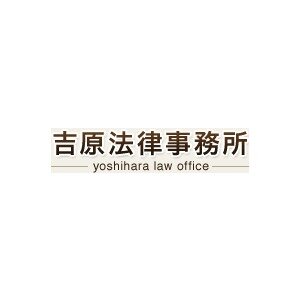Best Faith-Based Law Lawyers in Japan
Share your needs with us, get contacted by law firms.
Free. Takes 2 min.
Or refine your search by selecting a city:
List of the best lawyers in Japan
About Faith-Based Law in Japan
Faith-Based Law in Japan refers to legal considerations and frameworks that relate to religious practices, organizations, and individuals within the country. Japan, while primarily secular in its legal structure, recognizes the importance of religious freedom as protected by its Constitution. This involves understanding how law intersects with religious practices, from the management of religious organizations to the protection of individual religious rights within a diverse society.
Why You May Need a Lawyer
Individuals and organizations may require legal assistance in Faith-Based Law for various reasons. Some common situations include:
- Establishing or managing a religious institution, which involves navigating complex regulatory requirements.
- Addressing conflicts between religious practices and secular laws, particularly in professional or educational settings.
- Dealing with issues related to religious discrimination or the protection of religious rights.
- Handling matters of church-state separation as prescribed by Japanese law.
- Pursuing legal remedies in cases of religious defamation or slander.
Local Laws Overview
Japanese law is strongly founded on the principle of separation of religion and state. Key aspects include:
- The Constitution: Article 20 and Article 89 of the Japanese Constitution provide for freedom of religion and prohibit the State from engaging in religious activities or preferential treatment.
- Religious Corporations Act: This act governs the incorporation, operation, and dissolution of religious organizations, ensuring they operate within legal and ethical standards.
- Nonprofit Organization Law: Religious groups often operate as nonprofit entities, and understanding this law is crucial for legal compliance.
- Labor Laws: Issues can arise when religious beliefs intersect with work requirements or discrimination in the workplace.
Frequently Asked Questions
What is the primary legal framework governing religion in Japan?
The primary legal framework is the Japanese Constitution, which guarantees freedom of religion and the separation of religion from the state, supported by the Religious Corporations Act.
Can a religious organization own property in Japan?
Yes, religious organizations can own property, but they must be incorporated as religious corporations in compliance with the Religious Corporations Act.
Are religious holidays officially recognized by the Japanese government?
Japan, as a secular state, does not officially recognize religious holidays, though individuals can take time off for religious observances as part of their personal or organizational policies.
How can individuals protect themselves from religious discrimination in Japan?
Legal protections against discrimination are built into broader civil rights and employment laws. Individuals can seek legal recourse if they experience religious discrimination.
Is it possible to register a new religious sect in Japan?
Yes, new religious sects can be registered under the Religious Corporations Act, granting them legal status and certain privileges, such as tax benefits.
What is the process to resolve a conflict between religious beliefs and secular laws?
Conflicts are usually resolved through legal consultation, mediation, or litigation if necessary, keeping in mind constitutional principles and precedents.
Can non-citizens establish religious organizations in Japan?
Non-citizens can establish religious organizations as long as they comply with Japanese laws and residency requirements.
Are there any restrictions on religious practices in Japan?
While there is freedom of religion, practices that violate public order or involve illegal activities are restricted.
How can religious groups maintain their nonprofit status?
Religious groups must adhere to rules and regulations for nonprofit organizations, including regular financial reporting and adherence to activities stated in their incorporation documents.
What is the role of the government regarding religious education?
The government does not fund or provide religious education due to the separation of religion and state, but private religious schooling is permitted.
Additional Resources
For further assistance, consider consulting the following resources:
- Local Legal Aid Bureaus: Offer assistance in understanding and navigating legal processes.
- Ministry of Education, Culture, Sports, Science and Technology (MEXT): Provides guidelines on religious education and cultural properties.
- Japan Federation of Bar Associations: Can help you find a qualified lawyer in Faith-Based Law.
- Online Legal Information Portals: Websites that provide access to Japanese law texts and interpretations relevant to Faith-Based Law.
Next Steps
If you require legal assistance in Faith-Based Law:
- Conduct preliminary research to better understand your specific issue.
- Gather any relevant documents and information about your case or situation.
- Consult a lawyer who specializes in Faith-Based Law in Japan. Consider reaching out to local bar associations or legal aid services.
- Discuss your situation in detail with your lawyer to develop a tailored legal strategy or solution.
- Follow through on any legal advice or procedures recommended by your legal counsel.
By being informed and proactive, you can effectively navigate the complexities of Faith-Based Law in Japan.
Lawzana helps you find the best lawyers and law firms in Japan through a curated and pre-screened list of qualified legal professionals. Our platform offers rankings and detailed profiles of attorneys and law firms, allowing you to compare based on practice areas, including Faith-Based Law, experience, and client feedback.
Each profile includes a description of the firm's areas of practice, client reviews, team members and partners, year of establishment, spoken languages, office locations, contact information, social media presence, and any published articles or resources. Most firms on our platform speak English and are experienced in both local and international legal matters.
Get a quote from top-rated law firms in Japan — quickly, securely, and without unnecessary hassle.
Disclaimer:
The information provided on this page is for general informational purposes only and does not constitute legal advice. While we strive to ensure the accuracy and relevance of the content, legal information may change over time, and interpretations of the law can vary. You should always consult with a qualified legal professional for advice specific to your situation.
We disclaim all liability for actions taken or not taken based on the content of this page. If you believe any information is incorrect or outdated, please contact us, and we will review and update it where appropriate.
Browse faith-based law law firms by city in Japan
Refine your search by selecting a city.












